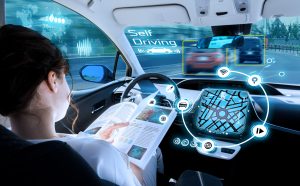The transport industry is no stranger to innovation, perpetually existing at the forefront of technology and continually evolving to meet the changing needs of society. From the original invention of the wheel to the development of steam-powered locomotives and automobiles, transportation has always been a catalyst for progress and growth across the entire planet. In the current age of technological advancements, innovation is reshaping the transportation landscape like never before, paving the way for a more efficient, sustainable, and connected future.

One of the most significant innovations in transportation is the rise of electric vehicles (EVs), where notable improvements in battery technology have led to increases in the range and efficiency of EVs, making them an increasingly viable option for everyday use. With the urgent need to reduce carbon emissions in an effort to combat climate change, EVs offer a cleaner and more sustainable alternative to conventional fossil fuel-powered vehicles. The extensive efforts to integrate charging infrastructure into a network of stations across the country further support the adoption of EVs by making charging stations widespread and convenient to access. There is still a lot of work to be done if EVs are going to replace their combustion-powered counterparts but with continued efforts to improve and innovate, we are well on our way to a cleaner future.
But what about vehicle safety?
Autonomous vehicles (AVs) are another groundbreaking innovation seeking to revolutionise the transportation industry, conjuring images of a future where self-driving cars and trucks can navigate roads with precision. By leveraging advanced technologies such as machine learning and artificial intelligence in tandem with evermore sophisticated sensors, AVs have the potential to enhance road safety by eliminating human errors and, in doing so, facilitate smoother traffic flows, reducing congestion and increasing transportation efficiency. As AV technology matures, we can continue moving toward a future where shared autonomous fleets transform the way we commute, reducing the need for individual vehicle ownership and creating a safer system of transport on the roads.
 But with that imagined future still a work in progress, what is being done to improve safety and reduce congestion on the roads right now?
But with that imagined future still a work in progress, what is being done to improve safety and reduce congestion on the roads right now?
The integration of technology into transportation systems has given rise to smart transportation solutions. Intelligent traffic management systems use real-time data, sensors, and predictive analytics to optimise traffic flow, reducing congestion and improving overall traffic efficiency. Smart infrastructure, such as connected traffic lights and adaptive sign control, can dynamically adjust traffic patterns based on demand leading to a reduction in travel times and emissions. In tandem with improving AV technologies, innovations in vehicle-to-vehicle and vehicle-to-infrastructure communication enhance safety by enabling the exchange of information between vehicles and infrastructure, allowing drivers to react to potential hazards far more dynamically than.
To conclude, innovation is reshaping the transportation industry and revolutionising the way we move people and goods across the country and the globe. Innovation is consistently driving improvements in efficiency and sustainability for our transport systems, creating a society that is more connected than ever before. Embracing these innovations is essential for environmental challenges, safety, and improving the quality of transportation services.